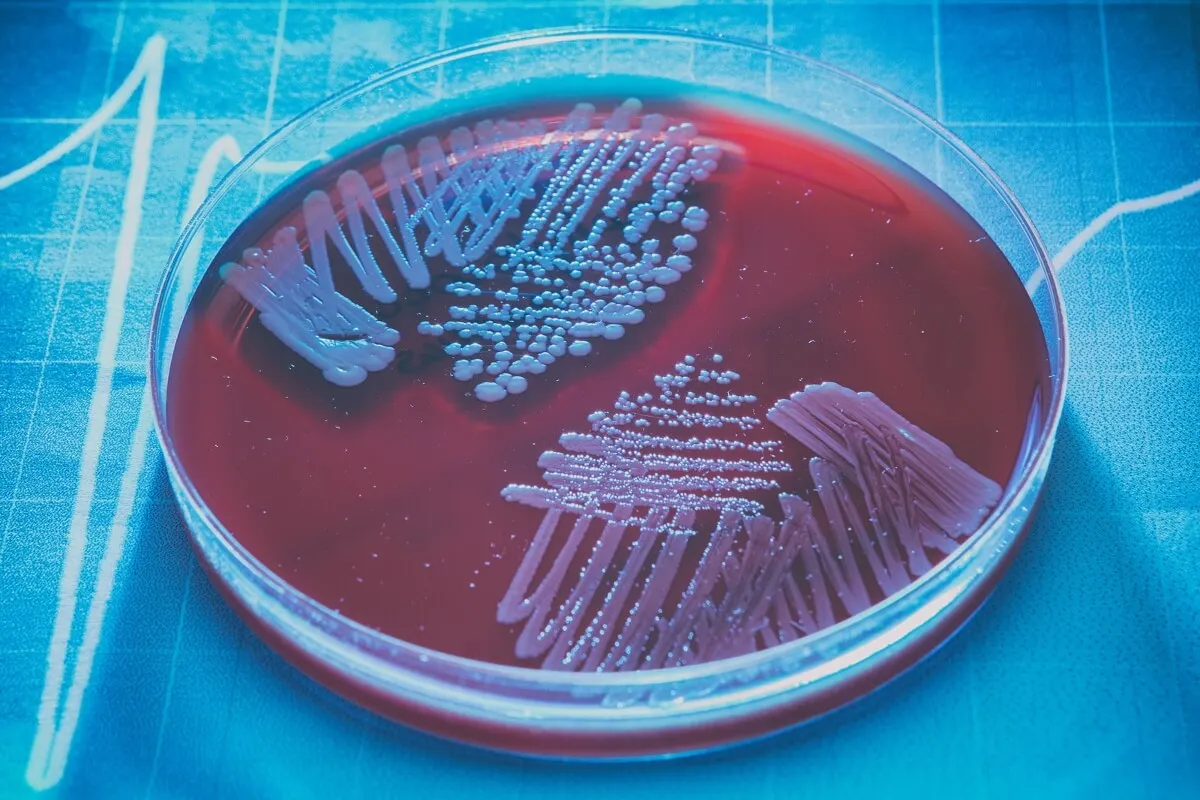5 Medical Treatments for Cystitis, Their Characteristics and Their Contraindications


Reviewed and approved by the pharmacist Franciele Rohor de Souza
Cystitis is an infection of the lower urinary tract that occurs when certain bacteria reach the bladder. This pathology tends to be very annoying and should be treated as soon as possible. Would you like to know about the different types of medical treatments for cystitis? In this article, we’ll tell you about the five most common different options.
Studies have shown that urinary tract infections are among the most common reasons for a doctor’s appointment. Symptoms range from pain and difficulty urinating to cloudy urine with a strong or unpleasant odor.
Early diagnosis and prompt treatment of this condition is crucial to improve health prognosis. Therapeutic failure or delay in the professional approach favors the appearance of complications in the medium and long term.
5 types of medical treatments for cystitis
The treatment of cystitis is aimed at eliminating the bacteria responsible and, in turn, alleviating the discomfort. The medication for cystitis chosen will depend on whether it’s an acute or chronic infection. Therapeutic options include the following:
1. Antibiotics
This is the first choice medication for cystitis, as they’re responsible for eradicating the causative agent. According to studies, the microorganisms that most frequently cause urinary tract infections are those that inhabit the gastrointestinal tract, such as Escherichia coli. Some of the antibiotics effective against these bacteria are the following:
- Fosfomycin: This is one of the drugs used in the management of urinary tract infections. The recommended dose is 1 sachet of 8 grams in a single dose or every 24 hours for 2 days.
- Nitrofurantoin: Nitrofurantoin is another effective drug for cystitis. The dosage is usually 1 capsule of 100 milligrams every 6 hours for 7 to 10 days. Like fosfomycin, nitrofurantoin has minimal effect on the normal flora of the intestine, according to research.
- Trimethoprim-Sulfamethoxazole: This is a mixture of 2 pharmacological compounds that are especially effective against Escherichia coli and other enterobacteria. Its dosage is usually 1 or 2 tablets every 12 hours, for at least 5 days.
- Penicillins and cephalosporins: These are compounds that act by inhibiting the formation of the wall that covers bacteria. Their dosage varies for each group of drugs. Some penicillins used are ampicillin and amoxicillin with clavulanic acid.
- Fluoroquinolones: These aren’t often used in uncomplicated urinary tract infections, as the risks outweigh the benefits in most cases. Ofloxacin, ciprofloxacin, and levofloxacin are some of the most useful.
We think you may also like to read: How Antibiotics Work for Urinary Tract Infections
Contraindications
The main contraindication to the intake of antibiotic drugs for cystitis is an allergy to the active ingredient, especially with penicillin. The consumption of these drugs by allergic persons can cause a life-threatening generalized inflammatory reaction.
In addition, pregnant or breastfeeding women should consult a specialist beforehand, as they can affect the baby. Children under 3 months of age and people with kidney conditions should receive special doses.

2. Antispasmodics and analgesics
Pain and burning during urination are usually the most annoying symptoms of cystitis. Other symptoms that cause discomfort are urinary urgency, abdominal pain, and increased urinary frequency. Fortunately, medications for cystitis include antispasmodics and pain relievers.
Antispasmodics, such as scopolamine and flavoxate, help relieve symptoms. Both prevent bladder contraction, which reduces pain and urinary frequency.
Phenazopyridine is an analgesic that acts on the urinary tract, so it is able to relieve the pain of cystitis. In fact, a study in the journal Urologia showed that it’s a useful drug and well tolerated by people with uncomplicated cystitis.
Contraindications
Both scopolamine and flavoxate are contraindicated in obstructive urinary pathologies, as well as in pyloric obstruction and paralytic ileus. This is because they decrease natural peristalsis and worsen these pathologies. Scopolamine is also contraindicated in myasthenia gravis and narrow-angle glaucoma.
Phenazopyridine is contraindicated in children under 12 years of age. In addition, it should be used with extreme caution in people with liver or kidney disease.
3. Antiseptics
Other medications useful in treating cystitis are antiseptics. Research describes them as chemical compounds used on the skin or mucous membranes to inhibit bacterial growth. In this case, the most commonly used are methenamine and methylthioninium chloride.
Both compounds are capable of eliminating germs from the urinary tract, thus relieving symptoms within a few days. In addition, studies establish that methenamine is often prescribed to prevent the recurrence of cystitis in the short term.
Contraindications
Methenamine shouldn’t be used under any circumstances in people with severe hepatic or renal insufficiency or in those with metabolic acidosis. This is because these clinical pictures may worsen and put the patient’s life at risk.
4. Anti-inflammatory drugs
Nonsteroidal anti-inflammatory drugs (NSAIDs), such as ibuprofen, are used to treat the discomfort of cystitis in the first instance, according to studies. Thanks to their mechanism of action, they reduce inflammation in the bladder, which relieves pain and burning during urination.
The effectiveness of these compounds can be increased when taken together with spasmolytics, such as scopolamine. As mentioned above, the latter will decrease bladder and urethral contractions, providing further relief.
We think you may also like to read: Non-Steroidal Anti-Inflammatory Drugs (NSAIDs)
Contraindications
Anti-inflammatory drugs are safe for most people. Their use is contraindicated only in patients who have had conditions related to taking them, such as bronchospasm, urticaria, or gastrointestinal bleeding.
5. Vaccines for urinary tract infections
There are useful immunization methods to treat and prevent cystitis, such as the case of Uro-vaxom ®. This tablet contains more than 10 strains of Escherichia coli, which is the main cause of urinary tract infections worldwide.
The drug has the ability to activate the immune system to fight colonization and invasion by these bacteria. A study published in the journal Current Urology states that it’s an effective treatment to prevent recurrent urinary tract infections.
Contraindications
The vaccine in tablet form is one of the safest drugs on the list, and its only contraindication is an allergy to any drug components. It should be discontinued if any skin reaction, such as urticaria, edema or fever, is observed.
Its effectiveness in children under 4 years of age hasn’t yet been demonstrated.
Other medications for cystitis
All of the medications mentioned above are useful in acute cystitis, however, the therapeutic options for chronic or recurrent cases may vary. Interstitial cystitis is one of the most severe variants, so its approach should be more aggressive, combining the following options:
- Antihistamines: These decrease urinary frequency. One of the drugs in this group is loratadine.
- Pentosan polysulfate sodium: Believed to protect the inner walls of the bladder from irritants, although its mechanism of action isn’t fully understood. It reduces damage to the organ and relieves pain during urination.
- Tricyclic antidepressants: Thanks to their affinity for multiple receptors, they relax the bladder and block pain, providing relief. The drugs used in this case are amitriptyline and imipramine.

Some recommendations and home remedies
It’s possible to apply some lifestyle changes to reduce the discomfort associated with cystitis. Some recommendations are the following:
- Drinking plenty of water
- Limiting the consumption of irritating drinks, sodas, and citric juices.
- Avoiding coffee and alcohol intake.
- Using warm compresses on the lower abdomen to relieve pressure at this level.
In addition, some home treatments can be useful to prevent and control this condition. However, it’s important to emphasize that they aren’t a substitute for physician-prescribed medication for cystitis.
A study published in The Journal of Nutrition showed that consumption of cranberries decreases the likelihood of urinary tract infections by up to 26%.
Herbal teas, such as dandelion and parsley, have been shown to be effective. They have diuretic properties, so they help prevent the colonization of bacteria in the urinary tract.
Many options for the same condition
As you can see, there are many types of medication for cystitis. Most of them are aimed at eliminating the causative agent. However, there are also compounds used to reduce and alleviate the symptoms.
Before using any of the options we tell you about, it’s always advisable to see a specialist. The medical staff will be able to identify the causal agent and indicate the appropriate treatment.
All cited sources were thoroughly reviewed by our team to ensure their quality, reliability, currency, and validity. The bibliography of this article was considered reliable and of academic or scientific accuracy.
- Artero, A., Lopéz-Cruz, I., Piles, L., Alberola, J., Eiros, J., Salavert, S., Madrazo, M. (2023). Fluoroquinolones Are Useful as Directed Treatment for Complicated UTI in a Setting with a High Prevalence of Quinolone-Resistant Microorganisms. Antibiotics, 12(1): 183. https://www.ncbi.nlm.nih.gov/pmc/articles/PMC9854898/
- Brodie A., El-Taji O., Jour I., Foley C., Hanbury D. (2020). A Retrospective Study of Immunotherapy Treatment with Uro-Vaxom (OM-89®) for Prophylaxis of Recurrent Urinary Tract Infections. Current Urology, 14(3):130-134. https://pubmed.ncbi.nlm.nih.gov/33224005/
- Díaz, D., Espinoza, L., Madrid, A., Pizarro, P., Chamy, R. (2018). Isolation and Identification of Compounds from Bioactive Extracts of Taraxacum officinale Weber ex F. H. Wigg. (Dandelion) as a Potential Source of Antibacterial Agents.
- Evidence-Based Complementary and Alternative Medicine; 2018: 2706417. https://www.ncbi.nlm.nih.gov/pmc/articles/PMC5817818/
- Jiménez, J., Carballo, K., Chacón, N. (2017). Manejo de infecciones del tracto urinario. Revista Costarricense de Salud Pública; 26(1). https://www.scielo.sa.cr/scielo.php?script=sci_arttext&pid=S1409-14292017000100001
- Kolman K. (2019). Cystitis and Pyelonephritis: Diagnosis, Treatment, and Prevention. Primary Care, 46(2):191-202. https://pubmed.ncbi.nlm.nih.gov/31030820/
- Lee B., Bhuta T., Simpson J., Craig J. (2012). Methenamine hippurate for preventing urinary tract infections. Cochrane Database of Systematic Reviews, (10). https://www.cochrane.org/es/CD003265/RENAL_metenamina-para-la-prevencion-de-las-infecciones-urinarias
- Petrov S., Slesarevskaya M., Chibirov K., Topuzov M., et al. (2020). Efficiency and safety of phenazopyridine for treatment of uncomplicated urinary tract infection: results of multi-center, randomized, placebo-controlled, clinical study. Urologiia, 3:15-21. https://pubmed.ncbi.nlm.nih.gov/32597580/
- Tan, C., Chlebicki, M. (2016) Urinary tract infections in adults. Singapure Medical Journal; 57(9): 485–490. https://www.ncbi.nlm.nih.gov/pmc/articles/PMC5027397/
- Urology Care Foundation (2023) Interstitial Cystitis. Consultado el día 12 de julio de 2024. https://www.urologyhealth.org/urology-a-z/i/interstitial-cystitis
- Xia, J., Yang, C., Xu, D., Xia, H., Yang, L., Sun, G. (2021). Consumption of cranberry as adjuvant therapy for urinary tract infections in susceptible populations: A systematic review and meta-analysis with trial sequential análisis. Plos One; 16(9): e0256992. https://journals.plos.org/plosone/article?id=10.1371/journal.pone.0256992
- Yu, Z., Jian-Guo, W., Hong-Ji, Z., Wen-Xiang, H., Bei, J. (2020). Efficacy of Nonsteroidal Anti-inflammatory Drugs for Treatment of Uncomplicated Lower Urinary Tract Infections in Women: A Meta-analysis. Infectious Microbes & Diseases; 2(2):p 77-82. https://journals.lww.com/imd/fulltext/2020/06000/efficacy_of_nonsteroidal_anti_inflammatory_drugs.7.aspx
This text is provided for informational purposes only and does not replace consultation with a professional. If in doubt, consult your specialist.








